Sonntag, 9. November 2008
 A PEACECAMP-REUNION for ALL PARTICIPANTS OF PEACECAMPS 2008 AND 2008
A PEACECAMP-REUNION for ALL PARTICIPANTS OF PEACECAMPS 2008 AND 2008will take place in
in ISRAEL : April 4th-14th, 2009
for information see
peacecampreunion2009.blogger.de
peacecamp, 01:50h
A PEACECAMP-REUNION will take place in
in ISRAEL : April 4th-14th, 2009
for information see
peacecampreunion2009.blogger.de
Do not forget to bring your peacecamp-t-shirts
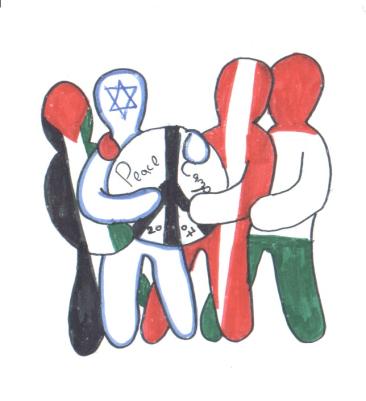
in ISRAEL : April 4th-14th, 2009
for information see
peacecampreunion2009.blogger.de
Do not forget to bring your peacecamp-t-shirts

... link (0 Kommentare) ... comment
Donnerstag, 3. Juli 2008
A letter from Segev
participant of peacecamp 2007
Jewish-Israeli group
participant of peacecamp 2007
Jewish-Israeli group
peacecamp, 03:58h
hi evelyn
we didn't speak for a very long time
how are you?
i hope you're ready for another peacecamp, with new kids, and old fights...
i send you this mail in the name of all our delegation
we all wish you a very successful camp, and hope the kids will DO make peace between themselves
it's been a full year today since the last camp started, the camp we've been in
and i hope the current camp will be at least as succesful as ours was...
after this camp, i'd like to see if there's still the oportunity of doing a reunion for both of the camps!!!
i know that osnat, silvie and nazira are coming again to the camp, and i think that's great
we all wish you a very good luck on this camp
and we're waiting to hear some experiences you have had there...
after osnat is back we're gonna make here a Mesibat Preda with the class because she's not going to be our Mechanechet anymore...
we all miss you and hug you as strong as you would hug us
and again, good luck with the next camp
regards to ronny
the Jewish-Israeli Delegation of Peacecamp 2007
Lyr, Shir, Illy, Lotem, Asaf, Amir, Ohad and Segev (and osnat you'll meet tomorrow =] )
we didn't speak for a very long time
how are you?
i hope you're ready for another peacecamp, with new kids, and old fights...
i send you this mail in the name of all our delegation
we all wish you a very successful camp, and hope the kids will DO make peace between themselves
it's been a full year today since the last camp started, the camp we've been in
and i hope the current camp will be at least as succesful as ours was...
after this camp, i'd like to see if there's still the oportunity of doing a reunion for both of the camps!!!
i know that osnat, silvie and nazira are coming again to the camp, and i think that's great
we all wish you a very good luck on this camp
and we're waiting to hear some experiences you have had there...
after osnat is back we're gonna make here a Mesibat Preda with the class because she's not going to be our Mechanechet anymore...
we all miss you and hug you as strong as you would hug us
and again, good luck with the next camp
regards to ronny
the Jewish-Israeli Delegation of Peacecamp 2007
Lyr, Shir, Illy, Lotem, Asaf, Amir, Ohad and Segev (and osnat you'll meet tomorrow =] )
... link (0 Kommentare) ... comment
Samstag, 4. August 2007
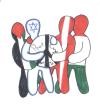 "Being you without self-confidence is person without peace"
"Being you without self-confidence is person without peace"About peacecamp 2007 - July 2nd-12th, Reibers, Lower Austria
peacecamp, 12:17h
"Being you without self-confidence is person without peace"
About peacecamp 2007 - July 2nd-12th, Reibers, Lower Austria
Before and after peacecamp 2007, which took place from July 2nd to 12th in Reibers, Lower Austria, participants were asked to answer 4 questions related to the theme "imagine peace". While their answers remained vague and impersonal before peacecamp ("The main obstacle to peace are the politicians"; "In order to promote peace one should exchange the politicians"), answers after the camp reflect a sense of personal responsibility and the possibility of exerting an influence on one's social and political reality ("I will tell people that prejudices are wrong and that it is not impossible to live together in peace").
During 10 days, sportive, creative and cultural activities offered opportunities to explore modes of cooperation and to establish a dialogue between members of four different cultures, Hungarians, Austrians, Jewish and Palestinian Israelis.
Psychoanalytic large group sessions allowed to explore conflictuous issues and to look at the conscious and unconscious elements which stand in the way of cooperation in the political reality of these groups and people. "We were supposed to imagine peace", said one participant at the end of the encounter, "but we did not imagine peace – we lived peace". And another one asked "We all lived together in peace for 10 whole days, so why can't we all live together in peace?"
The first group-discussion was ruthless and almost violent: "When I hear the word "Palestinian" I immediately think of suicide bombers, of blown up busses, of terror" said one of the Jewish-Israeli participants. Silence, dismay, helplessness and rage were part of almost all group-sessions. But at the airport, before leaving, there were sadness and tears, tears about having to separate and to leave after having grown together and established real closeness with one another. "When somebody in Israel tells me that all Palestinians are terrorists, I will tell them that this is not true, that I have shared a dormitory with 8 wonderful Palestinians and that I got on well with them".
The transitions from angry confrontation in group-discussions to a peaceful and constructive sense of togetherness at culture evenings and workshops were impressive. Without them, the two last-day-performances - the open day in Reibers and the festival4peace in Vienna's Augarten - would not have been possible. "We fought in the groups-discussions but were friends in the bedrooms". L. does not want to feel guilty about having her own state, S. feels threatened by N.'s necklace with the Palestinian flag over Israel, but N. does not understand why this should be a threat to her Jewish co-citizens: she cannot identify with the Magen David on Israel's flag nor with the Hatikwa, nor with the crosses which hang on all the walls of our peacecamp-youth-hostel. The Arab group points out a sense of equality which they experience at peacecamp:" We eat the same food, we sleep in the same rooms, we do the same things". The fact that they thank us again and again for this experience of equality evokes some doubts about the way they may feel in Israel, of which they are citizens, just their Jewish co-citizens.
How was it possible to leave the debates and confrontations in the groups and not to carry them into bedrooms and workshops? "We have decided", tells us one Arab participant. "We have decided to fight in the discussions and to be friends in the bedrooms". Is it possible to make such a decision and to stick to it, to leave all the unresolved and complex issues within the groups-setting and not to carry it into all the other activities? "Yes – this is what we have decided: We wanted to imagine peace".
One participant pointed out that peacecamp created a kind of new reality, in which one could confront difficult issues, because all could feel safe, protected and taken care of in the very same way. Another participant described how the rules stated for the group discussions created a sense of mutual respect, which enabled participants to confront complex issues which would be left within, and not destroy, the groups.
And B., who liked to be provocative at times and to sweeten bitter debates with hoax and jokes, came up with a really wise answer to the question for the main obstacles to peace: "The most obstacle is the trust. Being you without self-confidence is person without peace".
Evelyn Böhmer-Laufer
July 2007-07-17
http://peacecamp2007.blogger.de
About peacecamp 2007 - July 2nd-12th, Reibers, Lower Austria
Before and after peacecamp 2007, which took place from July 2nd to 12th in Reibers, Lower Austria, participants were asked to answer 4 questions related to the theme "imagine peace". While their answers remained vague and impersonal before peacecamp ("The main obstacle to peace are the politicians"; "In order to promote peace one should exchange the politicians"), answers after the camp reflect a sense of personal responsibility and the possibility of exerting an influence on one's social and political reality ("I will tell people that prejudices are wrong and that it is not impossible to live together in peace").
During 10 days, sportive, creative and cultural activities offered opportunities to explore modes of cooperation and to establish a dialogue between members of four different cultures, Hungarians, Austrians, Jewish and Palestinian Israelis.
Psychoanalytic large group sessions allowed to explore conflictuous issues and to look at the conscious and unconscious elements which stand in the way of cooperation in the political reality of these groups and people. "We were supposed to imagine peace", said one participant at the end of the encounter, "but we did not imagine peace – we lived peace". And another one asked "We all lived together in peace for 10 whole days, so why can't we all live together in peace?"
The first group-discussion was ruthless and almost violent: "When I hear the word "Palestinian" I immediately think of suicide bombers, of blown up busses, of terror" said one of the Jewish-Israeli participants. Silence, dismay, helplessness and rage were part of almost all group-sessions. But at the airport, before leaving, there were sadness and tears, tears about having to separate and to leave after having grown together and established real closeness with one another. "When somebody in Israel tells me that all Palestinians are terrorists, I will tell them that this is not true, that I have shared a dormitory with 8 wonderful Palestinians and that I got on well with them".
The transitions from angry confrontation in group-discussions to a peaceful and constructive sense of togetherness at culture evenings and workshops were impressive. Without them, the two last-day-performances - the open day in Reibers and the festival4peace in Vienna's Augarten - would not have been possible. "We fought in the groups-discussions but were friends in the bedrooms". L. does not want to feel guilty about having her own state, S. feels threatened by N.'s necklace with the Palestinian flag over Israel, but N. does not understand why this should be a threat to her Jewish co-citizens: she cannot identify with the Magen David on Israel's flag nor with the Hatikwa, nor with the crosses which hang on all the walls of our peacecamp-youth-hostel. The Arab group points out a sense of equality which they experience at peacecamp:" We eat the same food, we sleep in the same rooms, we do the same things". The fact that they thank us again and again for this experience of equality evokes some doubts about the way they may feel in Israel, of which they are citizens, just their Jewish co-citizens.
How was it possible to leave the debates and confrontations in the groups and not to carry them into bedrooms and workshops? "We have decided", tells us one Arab participant. "We have decided to fight in the discussions and to be friends in the bedrooms". Is it possible to make such a decision and to stick to it, to leave all the unresolved and complex issues within the groups-setting and not to carry it into all the other activities? "Yes – this is what we have decided: We wanted to imagine peace".
One participant pointed out that peacecamp created a kind of new reality, in which one could confront difficult issues, because all could feel safe, protected and taken care of in the very same way. Another participant described how the rules stated for the group discussions created a sense of mutual respect, which enabled participants to confront complex issues which would be left within, and not destroy, the groups.
And B., who liked to be provocative at times and to sweeten bitter debates with hoax and jokes, came up with a really wise answer to the question for the main obstacles to peace: "The most obstacle is the trust. Being you without self-confidence is person without peace".
Evelyn Böhmer-Laufer
July 2007-07-17
http://peacecamp2007.blogger.de
... link (0 Kommentare) ... comment
 "being you without self-confidence is person without peace"
"being you without self-confidence is person without peace"Ein Bericht über peacecamp 2007: imagine peace
Reibers/Waldviertel, Juli 2007
peacecamp, 12:15h
"being you without self-confidence is person without peace"
Ein Bericht über peacecamp 2007: imagine peace
Reibers/Waldviertel, Juli 2007
Vor und nach peacecamp 2007, welches vom 2. bis 12. Juli 2007 in Reibers im Waldviertel stattfand, waren die TeilnehmerInnen aufgefordert, vier Fragen zum Thema "imagine peace" zu beantworten. Waren die Antworten vor dem peacecamp vage und unpersönlich ("Ein Hindernis für den Frieden sind die Politiker.", "Um Frieden zu realisieren sollte man die Politiker austauschen."), spiegeln die nach dem peacecamp abgegebenen Statements ein Gefühl der Eigenverantwortung und die Möglichkeit persönlicher Einflussnahme wider: "Allein kann man nicht viel verändern, aber eine Gruppe kann sich für Frieden einsetzen." Oder: "Ich werde den Menschen, die ich treffe, sagen, dass Vorurteile falsch sind und dass es nicht unmöglich ist, in Frieden zusammenzuleben."
Das 10-tägige peacecamp bot den Jugendlichen Gelegenheit, im Rahmen gemeinsamer sportlicher, kreativer und kultureller Aktivitäten Wege der Kooperation und Möglichkeiten des Dialogs zu finden. Psychoanalytische Gruppengespräche machten es möglich, Konflikt-Themen zu diskutieren, um herauszufinden, was sich in der Realität der am peacecamp so konstruktiv gelebten Diversität entgegenstellt. "Wir sollten uns hier den Frieden vorstellen, aber wir haben ihn uns nicht vorgestellt, wir haben ihn gelebt." war der Konsens, zu dem TeilnehmerInnen am Ende ihrer Zusammenkunft kamen: "We all lived in peace for whole 10 days, so why can't we all live together in peace?"
Schon die erste Diskussion war schonungslos und heftig: "Wenn ich das Wort 'Palästinenser' höre, denke ich sofort an zerfetzte Autobusse, an Selbstmordattentate." eröffnete eine jüdisch-israelische Teilnehmerin die erste Diskussionsrunde. Betroffenheit, Schweigen, Hilflosigkeit und Wut waren Teil fast aller Gruppendiskussionen. Und dennoch flossen beim Abschied Tränen, waren doch in den wenigen Tagen zwischen den Jugendlichen aller vier Gruppen tiefe, prägende Freundschaften entstanden: "Wenn in Israel jemand zu mir sagt, dass alle Palästinenser Terroristen sind, so werde ich antworten, dass das nicht stimmt; ich werde erzählen, dass ich mit acht wunderbaren Palästinensern im einem gemeinsamen Schlafsaal geschlafen und mich mit ihnen sehr gut verstanden habe."
Eindrucksvoll waren die Übergänge von den konfrontativen Debatten, die viele der analytischen Gruppengespräche kennzeichneten, zu dem von Freundschaft und tiefer Verbundenheit geprägten Miteinander während der Kulturabende und in den Workshops. Ohne diese wären die berührenden Aufführungen an den beiden letzten Tagen - dem Tag der Offenen Tür in Reibers und dem festival4peace im Wiener Augarten - nicht zustande gekommen: "We fought in the discussions but were friends in the bedrooms." L. möchte sich nicht dafür schuldig fühlen, einen eigenen Staat zu haben, S. fühlt sich in ihrer Existenz bedroht, wenn N. ein ein von der palästinensischen Flagge umhülltes Israel als Halsketterl trägt, N. aber kann sich mit dem Magen David auf israelischen Flagge und der Hatikwa nicht identifizieren und versteht gar nicht, warum S. ihr Halsketterl als Bedrohung empfindet. Das Besondere für die arabische Gruppe sei die am peacecamp gelebte Gleichheit: "Wir schlafen im selben Schlafsaal, wir essen das selbe Essen, wir singen die selben Songs, wir machen die gleichen Aktivitäten." Dass sich die arabischen TeilnehmerInnen immer wieder für diese Gleichbehandlung bedankten, macht betroffen und nachdenklich: Man schließt daraus, dass dies für sie nichts Alltägliches ist.
Was hatte es möglich gemacht, den in den Gruppendebatten begonnenen Streit nicht in die Schlafsäle mitzunehmen, und in den Workshops so konstruktiv zusammen zu arbeiten? "We have decided", war die beinahe lakonische Antwort: "We have decided to discuss things in the safety of the group reunions, and to stop the fight when we went out of the reunion room." Ob es möglich ist, einen ungelösten Konflikt einfach so stehen zu lassen, zu beschließen, ab jetzt zu kooperieren anstatt weiter zu streiten? "Yes, this is what we have decided. We wanted to imagine peace."
Ein Jugendlicher hob hervor, dass peacecamp eine neue, sichere Realität darstellte, in der man sich trauen konnte, schwierige Themen zu erörtern, weil man sich gleich gut behandelt und gleich gut umsorgt fühlte. Ein Anderer hob die durch die Regeln der Gruppendiskussionen entstandene Atmosphäre gegenseitigen Respekts hervor, die es möglich machte, komplizierte und konfliktuelle Dinge anzusprechen, weil man davon ausgehen konnte, dass der Streit in der Gruppe bleiben und diese nicht zerstören würde.
Und so konnte B. der eigentlich immer ganz gern provozierte und ernsthaften Themen mit Späßen und Scherzen die Spitze zu nehmen versuchte, auf die Frage nach den Hindernissen zum Frieden eine geradezu weise Antwort geben: "The most obstacle ist the trust. Being you without self-confidence is person without peace".
http://peacecamp2007.blogger.de
Evelyn Böhmer-Laufer
14. Juli 2007
Ein Bericht über peacecamp 2007: imagine peace
Reibers/Waldviertel, Juli 2007
Vor und nach peacecamp 2007, welches vom 2. bis 12. Juli 2007 in Reibers im Waldviertel stattfand, waren die TeilnehmerInnen aufgefordert, vier Fragen zum Thema "imagine peace" zu beantworten. Waren die Antworten vor dem peacecamp vage und unpersönlich ("Ein Hindernis für den Frieden sind die Politiker.", "Um Frieden zu realisieren sollte man die Politiker austauschen."), spiegeln die nach dem peacecamp abgegebenen Statements ein Gefühl der Eigenverantwortung und die Möglichkeit persönlicher Einflussnahme wider: "Allein kann man nicht viel verändern, aber eine Gruppe kann sich für Frieden einsetzen." Oder: "Ich werde den Menschen, die ich treffe, sagen, dass Vorurteile falsch sind und dass es nicht unmöglich ist, in Frieden zusammenzuleben."
Das 10-tägige peacecamp bot den Jugendlichen Gelegenheit, im Rahmen gemeinsamer sportlicher, kreativer und kultureller Aktivitäten Wege der Kooperation und Möglichkeiten des Dialogs zu finden. Psychoanalytische Gruppengespräche machten es möglich, Konflikt-Themen zu diskutieren, um herauszufinden, was sich in der Realität der am peacecamp so konstruktiv gelebten Diversität entgegenstellt. "Wir sollten uns hier den Frieden vorstellen, aber wir haben ihn uns nicht vorgestellt, wir haben ihn gelebt." war der Konsens, zu dem TeilnehmerInnen am Ende ihrer Zusammenkunft kamen: "We all lived in peace for whole 10 days, so why can't we all live together in peace?"
Schon die erste Diskussion war schonungslos und heftig: "Wenn ich das Wort 'Palästinenser' höre, denke ich sofort an zerfetzte Autobusse, an Selbstmordattentate." eröffnete eine jüdisch-israelische Teilnehmerin die erste Diskussionsrunde. Betroffenheit, Schweigen, Hilflosigkeit und Wut waren Teil fast aller Gruppendiskussionen. Und dennoch flossen beim Abschied Tränen, waren doch in den wenigen Tagen zwischen den Jugendlichen aller vier Gruppen tiefe, prägende Freundschaften entstanden: "Wenn in Israel jemand zu mir sagt, dass alle Palästinenser Terroristen sind, so werde ich antworten, dass das nicht stimmt; ich werde erzählen, dass ich mit acht wunderbaren Palästinensern im einem gemeinsamen Schlafsaal geschlafen und mich mit ihnen sehr gut verstanden habe."
Eindrucksvoll waren die Übergänge von den konfrontativen Debatten, die viele der analytischen Gruppengespräche kennzeichneten, zu dem von Freundschaft und tiefer Verbundenheit geprägten Miteinander während der Kulturabende und in den Workshops. Ohne diese wären die berührenden Aufführungen an den beiden letzten Tagen - dem Tag der Offenen Tür in Reibers und dem festival4peace im Wiener Augarten - nicht zustande gekommen: "We fought in the discussions but were friends in the bedrooms." L. möchte sich nicht dafür schuldig fühlen, einen eigenen Staat zu haben, S. fühlt sich in ihrer Existenz bedroht, wenn N. ein ein von der palästinensischen Flagge umhülltes Israel als Halsketterl trägt, N. aber kann sich mit dem Magen David auf israelischen Flagge und der Hatikwa nicht identifizieren und versteht gar nicht, warum S. ihr Halsketterl als Bedrohung empfindet. Das Besondere für die arabische Gruppe sei die am peacecamp gelebte Gleichheit: "Wir schlafen im selben Schlafsaal, wir essen das selbe Essen, wir singen die selben Songs, wir machen die gleichen Aktivitäten." Dass sich die arabischen TeilnehmerInnen immer wieder für diese Gleichbehandlung bedankten, macht betroffen und nachdenklich: Man schließt daraus, dass dies für sie nichts Alltägliches ist.
Was hatte es möglich gemacht, den in den Gruppendebatten begonnenen Streit nicht in die Schlafsäle mitzunehmen, und in den Workshops so konstruktiv zusammen zu arbeiten? "We have decided", war die beinahe lakonische Antwort: "We have decided to discuss things in the safety of the group reunions, and to stop the fight when we went out of the reunion room." Ob es möglich ist, einen ungelösten Konflikt einfach so stehen zu lassen, zu beschließen, ab jetzt zu kooperieren anstatt weiter zu streiten? "Yes, this is what we have decided. We wanted to imagine peace."
Ein Jugendlicher hob hervor, dass peacecamp eine neue, sichere Realität darstellte, in der man sich trauen konnte, schwierige Themen zu erörtern, weil man sich gleich gut behandelt und gleich gut umsorgt fühlte. Ein Anderer hob die durch die Regeln der Gruppendiskussionen entstandene Atmosphäre gegenseitigen Respekts hervor, die es möglich machte, komplizierte und konfliktuelle Dinge anzusprechen, weil man davon ausgehen konnte, dass der Streit in der Gruppe bleiben und diese nicht zerstören würde.
Und so konnte B. der eigentlich immer ganz gern provozierte und ernsthaften Themen mit Späßen und Scherzen die Spitze zu nehmen versuchte, auf die Frage nach den Hindernissen zum Frieden eine geradezu weise Antwort geben: "The most obstacle ist the trust. Being you without self-confidence is person without peace".
http://peacecamp2007.blogger.de
Evelyn Böhmer-Laufer
14. Juli 2007
... link (0 Kommentare) ... comment
Montag, 2. Juli 2007
so now the day has come.....
to say:
have a wonderful trip
see you tomorrow, in Austria
evelyn
to say:
have a wonderful trip
see you tomorrow, in Austria
evelyn
peacecamp, 00:50h
... link (0 Kommentare) ... comment
Sonntag, 10. Juni 2007
Peacecamp 2007: "imagine peace"
July 2nd-12th, 2007 in Reibers, Waldviertel
July 2nd-12th, 2007 in Reibers, Waldviertel
peacecamp, 02:35h

peacecamp 2007 will take place in Austria, at the youth hostel in Reibers in the Waldviertel. You can see a lot of information about the place in http://www.8ung.at/jugendherberge/
Details on the programme are to be found in "organisational details" .
... link (2 Kommentare) ... comment
peacecamp 2007 - location
peacecamp, 02:32h
This is what the house looks like:
It used to be a school and was turned into a youth hostel.
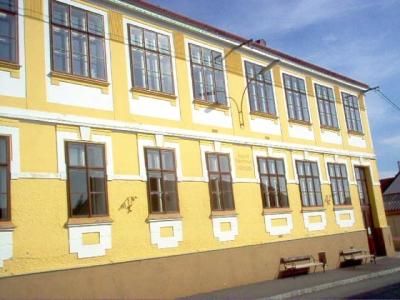
This is the street in front of the house....
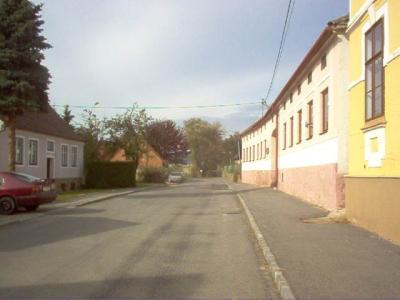
and a look into the village.
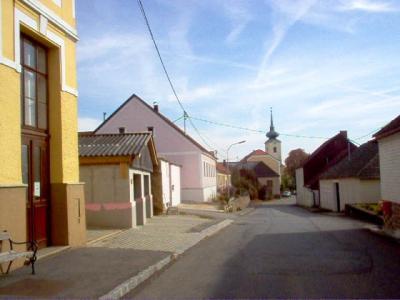
Behind the house, there is a courtyard...
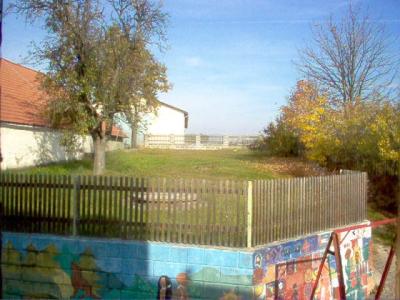
... with plenty of open space and a place for a bonfire. Keep your fingers crossed for nice weather!
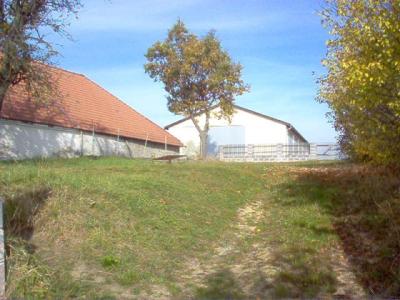
This is the kitchen, but we'll take our meals in a nearby restaurant. We can use the kitchen for small snacks and drinks, but we will not prepare our meals there.
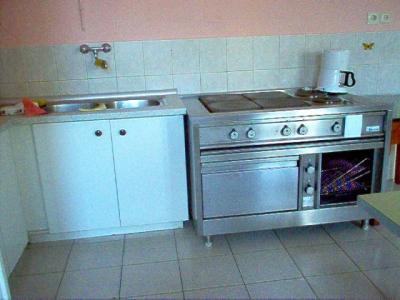
We'll use the dining rooms for workshops and reunions.
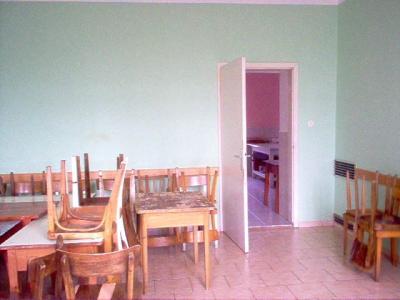
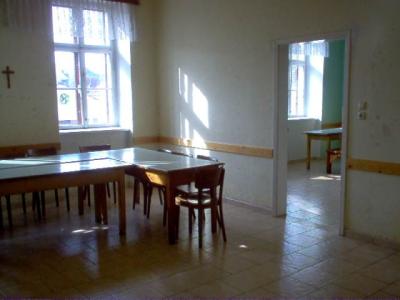
All boys, all girls, will share two large dormitories - one for the boys and one for the girls....
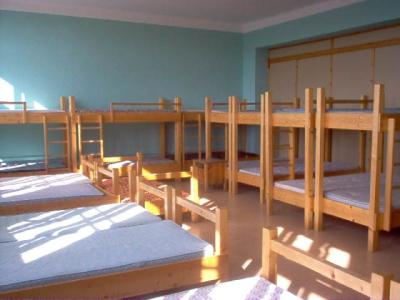
...the adults will use small and simple bedrooms
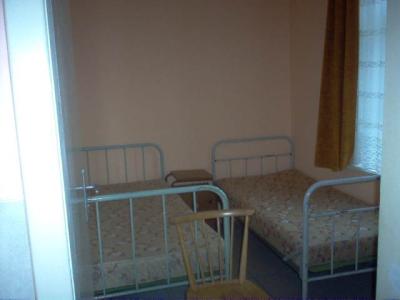
It won't be luxurious, but just as nice and cosy as we'll make it.
Don't forget to bring sleeping bags and/or bedsheets
and maybe things to decorate the place, to make it a real "home" for the time we spend there.
There are washing places for the girls as well as for the boys. I will bring liquid soap, but don't forget to bring your own towels and slippers.
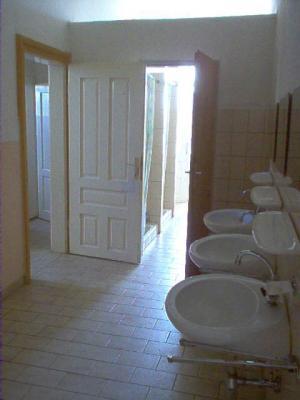
We also have two larger rooms for our workshops and discussion groups
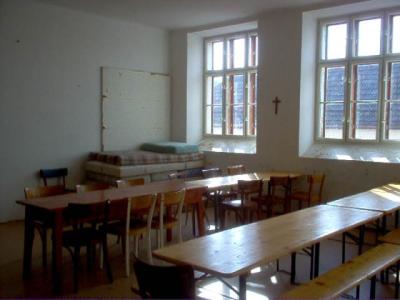
There is a nearby pond...
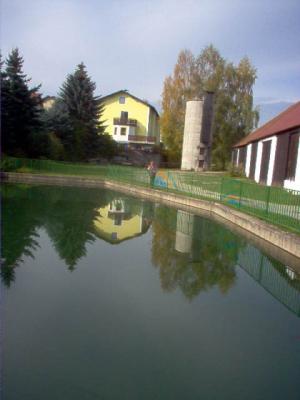
..in which you'll be able to refresh yourself, but
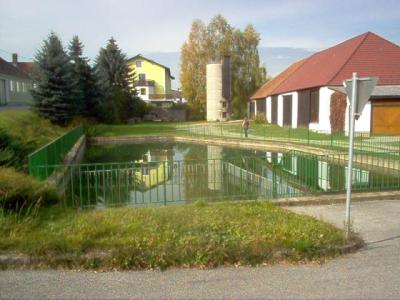
....it's not really big enough to call it a swimming pool. unfortunately there are no sport courts, but....
....some beautiful spots for outdoor-games and activities.
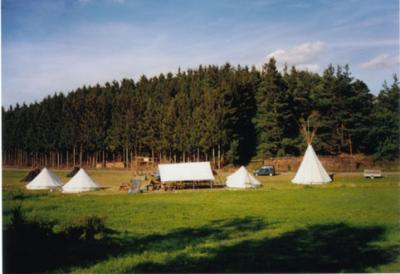
Please bring a simple white t-shirt on which we can print the camp's logo which we shall create together. We'll wear it on the last-day-event, when we present our work to a larger audience.
It used to be a school and was turned into a youth hostel.

This is the street in front of the house....

and a look into the village.

Behind the house, there is a courtyard...

... with plenty of open space and a place for a bonfire. Keep your fingers crossed for nice weather!

This is the kitchen, but we'll take our meals in a nearby restaurant. We can use the kitchen for small snacks and drinks, but we will not prepare our meals there.

We'll use the dining rooms for workshops and reunions.


All boys, all girls, will share two large dormitories - one for the boys and one for the girls....

...the adults will use small and simple bedrooms

It won't be luxurious, but just as nice and cosy as we'll make it.
Don't forget to bring sleeping bags and/or bedsheets
and maybe things to decorate the place, to make it a real "home" for the time we spend there.
There are washing places for the girls as well as for the boys. I will bring liquid soap, but don't forget to bring your own towels and slippers.

We also have two larger rooms for our workshops and discussion groups

There is a nearby pond...

..in which you'll be able to refresh yourself, but

....it's not really big enough to call it a swimming pool. unfortunately there are no sport courts, but....
....some beautiful spots for outdoor-games and activities.

Please bring a simple white t-shirt on which we can print the camp's logo which we shall create together. We'll wear it on the last-day-event, when we present our work to a larger audience.
... link (0 Kommentare) ... comment
Dienstag, 27. März 2007
 peacecamps sind ein wertvolles Instrument der Erziehung zum Frieden"
peacecamps sind ein wertvolles Instrument der Erziehung zum Frieden"Prof. Ulrich Kropiunigg und Birgit Pabst, 2007
peacecamp, 23:01h
Eine von Prof. Ulrich Kropiunigg, Medizinische Universität Wien, durchgeführte Langzeitstudie konnte "die Wirkung des Camps auf Vorurteile, Änderungen von persönlichen Einstellungen sowie die Bereitschaft zum Ansprechen potentieller Konflikt und Tabuthemen" nachweisen. Laut U.Kropiunigg (2007) führten "…peacecamps (zu) einer Stärkung des Selbstwertes, der mit einer Reduktion der Vorurteile einherging; Schlussfolgerung :"peacecamps sind ein wertvolles Instrument der Erziehung zum Frieden".
peacecamps are a valuable tool in peace-education
Research conducted by Vienna Medical School has demonstrated "better self-image, decrease of prejudices and increased ability to confront conflict and taboo issues in verbal, non-violent ways" as a result of peacecamps and labeled "peacecamps (as ) a valuable tool in the education to peace" (Prof. Ulrich Kropiunigg and Birgit Pabst, 2007).
peacecamps are a valuable tool in peace-education
Research conducted by Vienna Medical School has demonstrated "better self-image, decrease of prejudices and increased ability to confront conflict and taboo issues in verbal, non-violent ways" as a result of peacecamps and labeled "peacecamps (as ) a valuable tool in the education to peace" (Prof. Ulrich Kropiunigg and Birgit Pabst, 2007).
... link (5 Kommentare) ... comment
Freitag, 9. März 2007
 peacecamp 2007: imagine peace
peacecamp 2007: imagine peaceIsraelische, palästinensische, ungarische und österreichische Jugendliche
erforschen ihre Identität und stellen sich den Problemen ihrer Zeit
2. - 12. Juli 2007, Reibers im Waldviertel
peacecamp, 02:36h
peacecamp 2007: imagine peace ist ein Folgeprojekt der Projekte peacecamp 2004, 2005 und 2006, von denen alle vom Bundesministerium für Bildung, Wissenschaft und Kultur und der Karl Kahane-Stiftung, und die beiden Letzteren auch vom EU-Programm Jugend gefördert wurden.
Das seit 2004 bestehende peacecamp-Projekt hat das Ziel, junge Menschen für die Kultur, Religion, Sprache, Tradition anderer Menschen und Menschengruppen zu interessieren und es ihnen zu ermöglichen, Menschen aus einem anderen Kuklturkreis als dem Eigenen Kennen zu lernen. Etwaige Vorurteile gegenüber "Fremden" sollen an einer realen Bergegnung gemessen, und neuen, eigenen Beurteilung unterzogen werden.
peacecamp 2007: imagine peace wird vier Gruppen von Jugendlichen zusammenbringen und es ihnen ermöglichen, ihren jeweiligen historischen, nationalen, religiösen und kulturellen Kontext zu erforschen.
Ziel der Zusammenkunft ist es, den Jugendlichen zu ermöglichen,
- etwaige Vorurteile an den wahrnehmbaren Elementen einer realen Begegnung mit "Anderen"/ "Fremden" zu messen und zu hinterfragen
- durch gemeinsames kreatives Schaffen, gemeinsame Auseinandersetzung mit Problemstellungen und über den Weg des Dialogs Wege der Verständigung, der Kooperation und gewaltfreie Formen der Konfliktregelung zu erforschen
- die von Kriegen, Feindseligkeit und Ressentiments geprägten Grenzen zwischen Nationen und Religionen zu überwinden und durch gemeinsames Schaffen Brücken der Verständigung zu bauen.
Methoden
- tägliche Kunst-Workshops: Tägliche, von Künstlern angeleitete Kunst-Workshops sollen ein last-day-event vor einem realen Publikum vorbereiten.
- tägliche Outdoor-Aktivitäten sollen die Jugendlichen vor spannende Mission-Impossible-Aufgaben stellen, die durch die Entwicklung einer gemeinsamen Strategie auflösbar werden.
- gruppenanalytische Diskussionsrunden sollen Möglichkeiten bieten, bewusste und unbewusste Faktoren zu ergründen, die es Menschen und Gruppen schwer machen können, konstruktiv miteinander umzugehen; vielleicht können Wege und Strategien gefunden werden, diese Schwierigkeiten aufzulösen und Wege der Verständigung und der Kooperation zu finden.
- Teamsupervision
- last-day-event: Am letzten Tag der Zusammenkunft sollen die Jugendlichen vor einem realen Publikum die Ergebnisse ihrer Begegnung darbieten. Vorgesehen ist ein Multimedia-Event mit Ausstellung der am peacecamp zustande gekommenen Arbeiten, einer Tanz- und Musik-Darbietung, öffentlichen Workshops u.s.w. Diese Kulturveranstaltung wird an einem öffentlich zugänglichen Ort stattfinden, damit auch zufällig anwesende Personen diesem Ereignis beiwohnen können (z. B. Augarten in Wien).
Teilnehmer/innen
Teilnehmen am peacecamp 2007 werden 4 Gruppen zu je 10 Jugendlichen (15 - 17 Jahre) aus Israel, den palästinensischen Gebieten, Ungarn und Österreich. Die österreichischen Teilnehmer/innen sind Schüler/innen des Gymnasiums am Parhammerplatz, 1170 Wien. Je 2 erwachsene Gruppenleiter/innen sowie je ein/e Künstler/in bzw. Kunstpädagoge/in pro Gruppe werden die Jugendlichen begleiten. Für die Leitung der analytischen Gruppengespräche und der Teamsupervisionen werden 2 Psychotherapeuten/innen bzw. Gruppenanalytiker/innen am peacecamp 2007 anwesend sein.
Dokumentation
http://peacecamp2007.blogger.de
Dokumentation der früheren peacecamps:
http://peacecamp2006.blogger.de/
http://peacecamptalks.blogger.de/
http://peacecamp.blogger.de/
Allgemeines zum peacecamp-Projekt:
http://peacecamptexts.blogger.de/
Träger des peacecamp 2007 ist der neu gegründete Verein
4peace - Verein zur Förderung der politischen Mündigkeit
Für Idee und Konzept verantwortlich: Mag. Evelyn Böhmer-Laufer
Das seit 2004 bestehende peacecamp-Projekt hat das Ziel, junge Menschen für die Kultur, Religion, Sprache, Tradition anderer Menschen und Menschengruppen zu interessieren und es ihnen zu ermöglichen, Menschen aus einem anderen Kuklturkreis als dem Eigenen Kennen zu lernen. Etwaige Vorurteile gegenüber "Fremden" sollen an einer realen Bergegnung gemessen, und neuen, eigenen Beurteilung unterzogen werden.
peacecamp 2007: imagine peace wird vier Gruppen von Jugendlichen zusammenbringen und es ihnen ermöglichen, ihren jeweiligen historischen, nationalen, religiösen und kulturellen Kontext zu erforschen.
Ziel der Zusammenkunft ist es, den Jugendlichen zu ermöglichen,
- etwaige Vorurteile an den wahrnehmbaren Elementen einer realen Begegnung mit "Anderen"/ "Fremden" zu messen und zu hinterfragen
- durch gemeinsames kreatives Schaffen, gemeinsame Auseinandersetzung mit Problemstellungen und über den Weg des Dialogs Wege der Verständigung, der Kooperation und gewaltfreie Formen der Konfliktregelung zu erforschen
- die von Kriegen, Feindseligkeit und Ressentiments geprägten Grenzen zwischen Nationen und Religionen zu überwinden und durch gemeinsames Schaffen Brücken der Verständigung zu bauen.
Methoden
- tägliche Kunst-Workshops: Tägliche, von Künstlern angeleitete Kunst-Workshops sollen ein last-day-event vor einem realen Publikum vorbereiten.
- tägliche Outdoor-Aktivitäten sollen die Jugendlichen vor spannende Mission-Impossible-Aufgaben stellen, die durch die Entwicklung einer gemeinsamen Strategie auflösbar werden.
- gruppenanalytische Diskussionsrunden sollen Möglichkeiten bieten, bewusste und unbewusste Faktoren zu ergründen, die es Menschen und Gruppen schwer machen können, konstruktiv miteinander umzugehen; vielleicht können Wege und Strategien gefunden werden, diese Schwierigkeiten aufzulösen und Wege der Verständigung und der Kooperation zu finden.
- Teamsupervision
- last-day-event: Am letzten Tag der Zusammenkunft sollen die Jugendlichen vor einem realen Publikum die Ergebnisse ihrer Begegnung darbieten. Vorgesehen ist ein Multimedia-Event mit Ausstellung der am peacecamp zustande gekommenen Arbeiten, einer Tanz- und Musik-Darbietung, öffentlichen Workshops u.s.w. Diese Kulturveranstaltung wird an einem öffentlich zugänglichen Ort stattfinden, damit auch zufällig anwesende Personen diesem Ereignis beiwohnen können (z. B. Augarten in Wien).
Teilnehmer/innen
Teilnehmen am peacecamp 2007 werden 4 Gruppen zu je 10 Jugendlichen (15 - 17 Jahre) aus Israel, den palästinensischen Gebieten, Ungarn und Österreich. Die österreichischen Teilnehmer/innen sind Schüler/innen des Gymnasiums am Parhammerplatz, 1170 Wien. Je 2 erwachsene Gruppenleiter/innen sowie je ein/e Künstler/in bzw. Kunstpädagoge/in pro Gruppe werden die Jugendlichen begleiten. Für die Leitung der analytischen Gruppengespräche und der Teamsupervisionen werden 2 Psychotherapeuten/innen bzw. Gruppenanalytiker/innen am peacecamp 2007 anwesend sein.
Dokumentation
http://peacecamp2007.blogger.de
Dokumentation der früheren peacecamps:
http://peacecamp2006.blogger.de/
http://peacecamptalks.blogger.de/
http://peacecamp.blogger.de/
Allgemeines zum peacecamp-Projekt:
http://peacecamptexts.blogger.de/
Träger des peacecamp 2007 ist der neu gegründete Verein
4peace - Verein zur Förderung der politischen Mündigkeit
Für Idee und Konzept verantwortlich: Mag. Evelyn Böhmer-Laufer
... link (0 Kommentare) ... comment
 Peacecamp 2007: imagine peace
Peacecamp 2007: imagine peaceIsraeli, Palestinian, Austrian and Hungarian youth explore their identity and confront the problems of their time.
July 2nd-12th, 2007, in Reibers, Waldviertel, Lower Austria
peacecamp, 02:24h
peacecamp 2007: imagine peace is a project that follows peacecamps 2004, 2005 and 2006, which were supported by the Karl Kahane Foundation, the Austrian Ministry of Education and the Youth in Action Program of European Union.
peacecamp 2007 will bring together 4 groups of youth (16-17 years old) - Israeli, Palestinian, Hungarian and Austrian. They will meet in a quiet resort Austria, in the midst of forest and mountains, and share information about their respective personal, cultural, religious, national identities and the narrative of each group's history.
peacecamp 2007 will have
- Art workshops
- mission-impossible-challenges
- Group-analytic sessions and team-supervision
- A last-day-event in a public space at which peacecamp-participants will be able to present their work to a large audience.
peacecamp-research is conducted by Prof. Ulrich Kropiunigg, University of Vienna
Documentation
http://peacecamp.blogger.de/ (peacecamp 2004)
http://peacecamptalks.blogger.de/ (peacecamps 2004 and 2005)
http://peacecamp2006.blogger.de/
General information about the peacecamp-project
http://peacecamptexts.blogger.de/
peacecamp is realized by
4peace-Verein zur Förderung der politischen Mündigkeit
Evelyn Böhmer-Laufer
bohmerATutanet.at
tel: +431- 315 19 10
peacecamp 2007 will bring together 4 groups of youth (16-17 years old) - Israeli, Palestinian, Hungarian and Austrian. They will meet in a quiet resort Austria, in the midst of forest and mountains, and share information about their respective personal, cultural, religious, national identities and the narrative of each group's history.
peacecamp 2007 will have
- Art workshops
- mission-impossible-challenges
- Group-analytic sessions and team-supervision
- A last-day-event in a public space at which peacecamp-participants will be able to present their work to a large audience.
peacecamp-research is conducted by Prof. Ulrich Kropiunigg, University of Vienna
Documentation
http://peacecamp.blogger.de/ (peacecamp 2004)
http://peacecamptalks.blogger.de/ (peacecamps 2004 and 2005)
http://peacecamp2006.blogger.de/
General information about the peacecamp-project
http://peacecamptexts.blogger.de/
peacecamp is realized by
4peace-Verein zur Förderung der politischen Mündigkeit
Evelyn Böhmer-Laufer
bohmerATutanet.at
tel: +431- 315 19 10
... link (1 Kommentar) ... comment
... nächste Seite